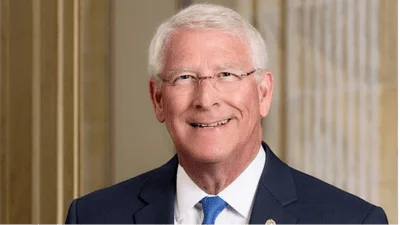WASHINGTON - Congresswoman Rosa DeLauro (D-CT), Chair of the Labor, Health and Human Services, Education, and Related Agencies Appropriations Subcommittee, delivered the following remarks at the Subcommittee's markup of its fiscal year 2021 bill:
Today’s markup of the 2021 Labor, Health and Human Services, Education and Related Agencies bill is the culmination of a lot of hard work, from members and staff, on both sides of the aisle. I want to thank my colleagues for being here, including my friend the ranking member, Congressman Tom Cole. Tom’s friendship, and our collaborating, has allowed us to work together to advance America’s needs. It is especially important during this tumultuous time that the Congress continues its work, to help the country succeed, and to allow them to see that the Congress is working on their behalf. So, we come today to markup this bill for 2021.
I received this committee assignment 25 years ago, and at the time, there were three Democratic women on the subcommittee: Speaker Pelosi, Nita, and myself. We were always plotting ways to advance women’s health. So, a lot of the progress we’ve made for women through these federal spending bills started with a side conversation between the three of us. Some of our colleagues thought we were discussing shoes or clothes, which was definitely the case on occasion, but most of the time we were scheming-banding together and dreaming of the ways in which we could expand NIH testing to include women or to invest in early childhood education.
When Nita became chair of the full committee, she had to decide which of the subcommittees she was going to keep. I joke about this being her favorite subcommittee, but it was a genuinely hard decision for her. She is grounded in foreign policy, but so much of her passion and her life’s work stems from this bill. From access to quality education to the protections of working men and women, to afterschool programs, Nita has made the nation, and the world, a far better place because of her commitment to this subcommittee.
Beyond her professionalism and leadership, Nita is genuine and compassionate. As she has for many of our other colleagues, she has been there for me in times of need.
I will miss seeing her in the halls of Congress and on the Appropriations Committee, but our friendship endures.
For 2021, the chair’s mark includes $196.5 billion in overall funding. That includes an increase of $2.4 billion above the 2020 enacted level and $20.8 billion above the President’s 2021 budget request. Now, more than ever, it is our job to give people a better chance at a better life.
We will address the numbers, but it is also critical that we speak about what they mean for our communities and what they reflect of our mission.
Labor-H and its programs are at the center of the health crisis and the economic crisis, both of which have exposed serious disparities. And, the virus continues to spike. 2.9 million cases. Tens of thousands of new cases are reported each day. 130,000 people in the U.S. have died.
The coronavirus is the biggest public health crisis we have experienced in the last century. Yet, a few days ago, the president said 99 percent of cases were, quote, “totally harmless." To be frank, the administration’s response to the coronavirus pandemic has been inconsistent, incoherent, and above all, dangerous.
In a typical public health emergency and historically, the response would be led by the CDC, the nation’s foremost public health agency, based on science and public health expertise. However, the administration has sidelined the CDC in our response to the pandemic and chosen political expediency over public health. As a result, the U.S. has had the worst response to the coronavirus of any country in the world. When I said that to Director Redfield a few weeks ago, several in this room thought I was off base. Now, we see the number of cases continues to climb. When we declared the state of emergency in March, we had 566 cases and 7 deaths. Now, as of July 7, there have been 2.9 million cases and 130,000 deaths. This is all particularly egregious because our public health system should have been better prepared than almost any other in the world.
In the absence of leadership from the White House, the Congress has stepped in. Since March 6, the Congress has passed four emergency supplemental appropriations packages. The Labor-H subcommittee is at the central of responding to COVID-19, and we have appropriated $280 billion dollars for education, for health, and for working people. I want to recognize and thank the ranking member, Tom Cole, for his partnership. We could add $300 billion in the Heroes bill: $197 billion in health, $100 billion in education, $3.1 billion in labor. We hope the Senate will pass the Heroes Act and the president will sign it.
With this chair’s mark, we are building on those emergency and supplemental packages. We are working together to defeat this virus, not surrender to it, and to deliver the people in this country to the dawn of a recovery, not to abandon them to an economic collapse. Making it safe, so the economy can reopen.
This bill supports some of our nation’s most critical programs. From Early Head Start to Social Security, they touch individuals and families throughout their lifespan. They create opportunity and allow America to realize its values and promise.
Our members recognize that. The Subcommittee received more than 15,000 requests for today’s bill. We were able to fulfill - either in total or in part - most of them, from both sides of the aisle.
This bill is also informed by our briefings and hearings. Since the beginning of February, the Labor-HHS-Education subcommittee has held more than a dozen bipartisan briefings or hearings, including nine on the topic of COVID-19.
So, working together and building on the efforts we have made together thus far, we advance today’s bill, making investments for the nation: for health, for education, and for good-paying, safe and secure jobs, and to address the disparities in these areas that have been exposed by this virus.
That is the mission of this bill. Now, let me overview.
For health, we provide approximately $96 billion for programs at the U.S. Department of Health and Human Services, an increase of $1.5 billion above the enacted level for 2020.
With this bill, we are seeking to do more to help our constituents to access new cures, new treatments, new research, and new protections, to help them and their families live healthier lives. To fight Alzheimer’s, cancer, opioid addiction, antibiotic-resistant infections, and gun violence, to support food safety, address maternal health, and eliminate HIV/AIDS.
Our nation faces health disparities. We seek to address them.
For early childhood programs in today’s bill, we include an increase of $150 million for Head Start; an increase of $100 million for child care; and an increase of $25 million for Preschool Development Grants. The first few years are essential to long-term outcomes for kids. But for our children to thrive, we have to support them at this vulnerable time of crucial development, especially when the twin health and economic crises we are facing have either disrupted their lives or have possibly exposed them to hardship, to poverty, to hunger, or to trauma. So, we invest in quality and affordable early childhood education and child care. Let me quote the Washington Post of Saturday, July 4, titled “Lack of child care slowing recovery, working parents swamped at home productivity slump pinned on school, center closures": “The child care crunch triggered by the pandemic has rapidly become a crisis for many workers and companies that is hindering the economic recovery, disproportionately harming women and threatening to leave deep scars for years to come."
On child care, we also have stand-alone emergency bills. I have introduced a bill, with many in this room, to provide $50 billion for a Child Care Stabilization Fund within the existing Child Care and Development Block Grant. Chairwoman Lowey and Representative Katherine Clark introduced a bill to provide $10 billion for child care infrastructure-another critical component that I am also proud to support.
Our public health infrastructure has failed. It has collapsed.
That is why we provide $24.425 billion in emergency supplemental appropriations to respond to the COVID-19 pandemic. To the Centers for Disease Control and Prevention, the National Institutes of Health, and the Biomedical Advanced Research and Development Authority. These monies support State and local public health departments, public health laboratories, and global public health activities, as well as further resources to accelerate the development and production of vaccines and therapeutics, which are necessary to end this pandemic and allow the country to return to economic and social activities. This also includes funding the Public Health Emergency Fund that would allow the Secretary of HHS to draw down from those dollars immediately. And not have to wait for Congress to pass a supplemental.
And, in this emergency funding, we want to ensure oversight and accountability. So, the scientists and public health officials are in charge, not politicians.
Then for education, we are witnessing the discussion around re-opening schools. We need a safe space for our children, with trauma-informed practices and resources to make up for lost learning time, especially for those youngsters who are most vulnerable to slipping through the cracks. That is what we are looking to address with education funding.
In the bill before us, we include a $716 million increase from 2020 to $73.5 billion dollars.
In K-12, that includes an increase for Title I grants of $254 million above 2020 to $16.6 billion. The President’s budget proposes to eliminate this program. This is the cornerstone of all federal K-12 programs to help address disparities in resources across school districts.
In special education, we provide an increase of $208 million to $14.1 billion in total. We only wish we could have done more, considering the unbelievable challenges that children with disabilities are facing in this pandemic, their families as well, with the serious disruptions to their education. It is our duty to be lifting them up.
And we eliminate a 46-year old provision preventing Federal funds to be used to overcome racial imbalance in our public schools.
In higher education, we provide a $45 million increase over the 2020 enacted levels for Federal student aid programs to $24.6 billion. And, we provide an $81 million increase over 2020 to support institutions of higher education. We also include $1.1 billion for Federal TRIO programs and $370 million for GEAR UP. These programs are lifelines to low-income students who are often the first in their families to go to college. I know there is deep support on both sides of the aisle for these initiatives.
We include language allowing incarcerated individuals to be eligible for Pell grants and pursue higher education. A prohibition has been on the books since 1994, but this bill takes steps to reduce recidivism and provide opportunities.
In Career, Technical and Adult Education, we provide a $25 million increase above the 2020 level.
We must meet our obligations to working people. Unemployment remains higher than any previous period since World War II. In a moment of high unemployment, it is vital that we are providing for good-paying, safe and secure jobs. So, this bill provides an increase for the Department of Labor of $254 million above 2020.
These investments help working people find good-paying jobs with a $187 million increase for the Employment Training Administration, including a $50 million increase for Workforce Innovation and Opportunity Act State Grants and a $10 million increase for Registered Apprenticeships. And, we block the administration from using these funds to support low-quality programs with no evidence base, also known as industry-recognized apprenticeships.
And, our investments help keep working people safe on the job. That is the responsible thing to do. We are responsible for their working conditions and their health. The administration has abandoned its obligations to people. At the moment, these are the forgotten Americans: the migrant workers on farms, the workers at meat processing plants, the men and women of this country at factories, in retail, at restaurants, clocking in and clocking out to feed their family and support this nation.
So, we are pushing to provide them with the protections they need, they deserve, and they’ve earned.
In today’s bill, we add to that, investing $1.7 billion for Worker Protection Agencies, including a $12 million increase for OSHA for enforcement efforts, more inspectors and to expand the Susan Harwood worker safety training grants. And, we provide funding to help States meet the unprecedented demand for Unemployment Insurance and include $925 million in emergency contingency funding to help States deal with the massive spike in claims.
Finally, it is vital that we provide this money for the people, but to ensure it gets to the people. So, the Labor-HHS-Education bill also includes strong oversight measures. We will not shirk our duty to ensure the accountability of taxpayer dollars. For example, the bill requires HHS to submit a weekly report on the inventory of ventilators and personal protective equipment (PPE) in the Strategic National Stockpile, as well as an annual professional judgment budget for necessary expenditures to maintain the minimum level of supplies and PPE, including in the case of a pandemic.
The Hyde amendment is a discriminatory policy. This is a long-standing issue of racial injustice and one that is routinely considered - every year as a legislative rider- but we are in a moment to reckon with the norm, with tradition, and view it through the lens of racial justice. So, although this year’s bill includes it, let me be clear we will fight to remove the Hyde amendment to ensure that women of color and all women have access to the reproductive health they deserve.
I am proud to be a member of this institution because of what we do in moments like these. In moments of crisis, where federal leadership is vital yet missing, government must act. We do so now, as the virus is spiking. With this funding bill for 2021, we are building on our emergency response to provide emergency investments and long-term investments. We can and must defeat the virus, and the racial disparities exposed in health, education, and the economy. Let us do that together by advancing this bill.
One final note, I would like to thank the staff for all their hard work to get this done.
Majority Staff: Brad Allen, Jared Bass, Jennifer Cama, Robin Juliano, Jackie Kilroy, Laurie Mignone, Stephen Steigleder, and Philip Tizzani.
Then, the minority staff: Susan Ross and Kathryn Salmon.
To my personal staff: Letty Mederos, Liz Albertine, and Caitlin Peruccio.
Now, let me turn to my colleague, the ranking member from Oklahoma, for whatever opening remarks he would like to make. Mr. Cole?
Source: U.S. Department of HCA









